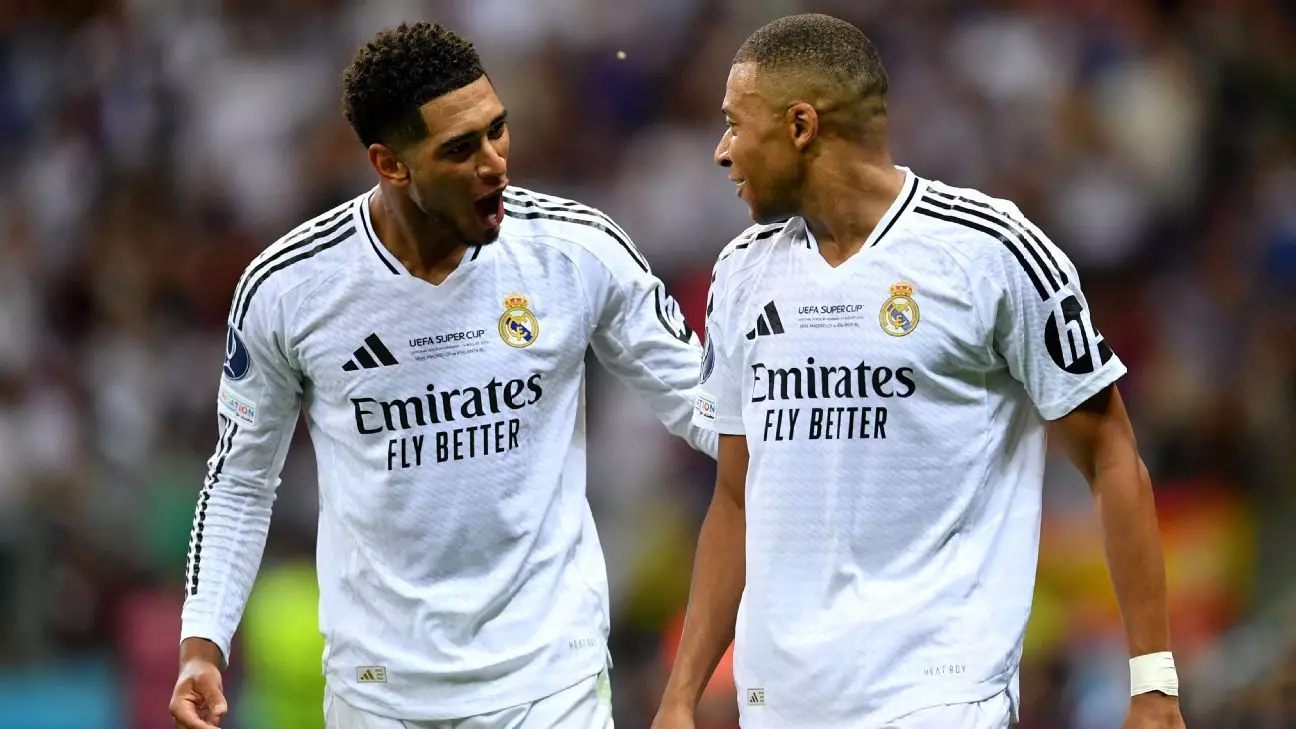The spotlight on Jude Bellingham’s shoulder injury shines a light on the complex and strategic thinking involved in injury management within elite football. Carlo Ancelotti, Real Madrid’s experienced manager, has chosen to handle Bellingham’s condition with a mix of caution and pragmatism. Despite Bellingham dislocating his left shoulder in November 2023 and managing it conservatively for the significant part of the previous season, recent events have warranted a reconsideration of his protective gear. Ancelotti’s admission that Bellingham will return to using protective strapping for the upcoming match against Alavés not only reflects the nature of sporting injuries but also showcases the importance placed on a player’s health and safety.
Ancelotti’s assurance that the injury does not pose a major concern, coupled with the decision to have Bellingham wear protective equipment, underscores a balanced approach to risk management. It highlights the intricacies of evaluating the readiness of a player while preparing for crucial fixtures. Moreover, the timing of Bellingham’s injury— occurring during a high-stakes 4-1 victory over Espanyol—emphasizes the unpredictable nature of the sport, where even minor incidents can have significant implications.
As Real Madrid navigates through a demanding fixture list, the concept of player rotation has become increasingly important. Ancelotti’s comments about assessing changes to the lineup against Alavés indicate a tactical awareness that extends beyond immediate results. He faces the task of balancing the need for strategic adjustments with maintaining team cohesion. The team’s upcoming derby against Atlético Madrid further complicates these decisions, adding pressure to ensure key players are fit and performing optimally not just in one match but across consecutive fixtures.
By resting key figures like Vinícius Júnior and Antonio Rüdiger against Espanyol, Ancelotti appears to be setting a precedent for rotation, emphasizing the long-term strategy over short-term gains. This method can pay dividends later in the season, particularly in high-stakes scenarios where fatigued players may be at a disadvantage. The fine line that managers walk between fielding their strongest squad and allowing adequate recovery time for players speaks to the complexities of modern football management.
The development of younger talents, such as Endrick, further enriches Real Madrid’s strategic framework. Ancelotti’s praise for the Brazilian forward highlights the club’s commitment to nurturing emerging players while integrating them into a competitive environment. Endrick’s contributions, including goals in both LaLiga and the Champions League, suggest a maturation process that hints at a promising career ahead.
Ancelotti’s recognition of Endrick’s professionalism and maturity illustrates the manager’s understanding of the importance of developing young prospects within a high-pressure setting. This experience in training with established stars positions the younger players to thrive when given the opportunity. As Bellingham and other established players navigate their form and fitness levels, the emergence of talents like Endrick could provide the crucial reinforcement that Real Madrid needs for a successful campaign.
Lastly, the confirmation of Ferland Mendy’s contract renewal is another vital aspect of Real Madrid’s stability and strategic planning. Ancelotti’s endorsement of Mendy as the world’s best defensive left-back speaks volumes about the player’s importance to the team’s defensive structure. The retention of key players not only fosters a sense of stability within the squad but also strengthens the club’s aspirations for ongoing success on both domestic and international fronts.
Real Madrid’s current situation reflects a blend of cautious injury management, tactical player rotation, youth development, and strategic contract negotiations. These multifaceted approaches are quintessential for a club aspiring to maintain its elite status in a competitive landscape, ensuring resilience amidst challenges and an eye toward future success.

